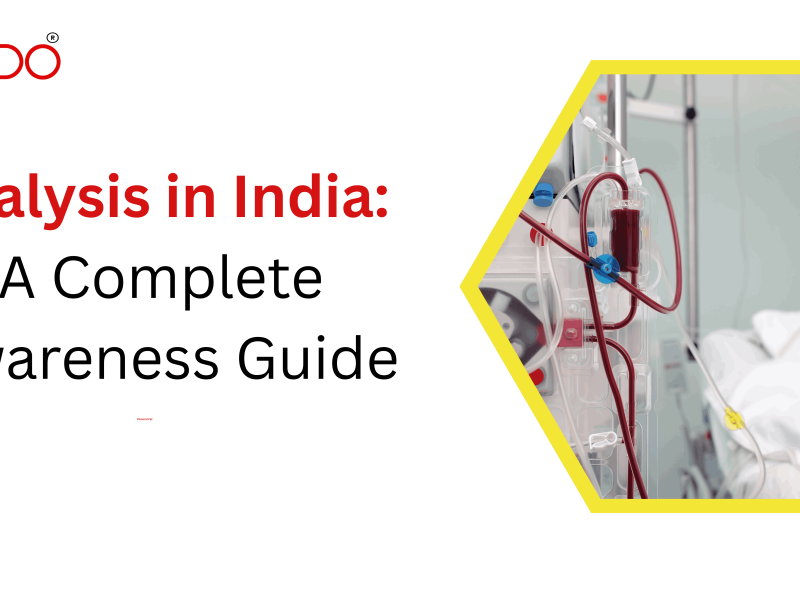Baby Vaccination is one of the most important steps in giving your child a healthy start in life. It protects babies from life-threatening diseases by boosting their immune system at the right stages of development. In India, a well-structured vaccination schedule is recommended by the Indian Academy of Pediatrics (IAP) and the Universal Immunization Programme (UIP).
At VMEDO, we understand how confusing and overwhelming it can be for new parents to stay on top of the baby immunization schedule. That’s why we’ve put together this complete guide Baby Vaccination Schedule in India will help you understand the what, why, and when of your baby’s vaccines.
What Is Baby Vaccination and Why Is It Important?
Vaccination is the process of administering a vaccine to stimulate your child’s immune system to fight specific infections. Unlike medicines that cure, vaccines prevent.
Benefits of Baby Vaccination:
-
Builds long-term immunity
-
Prevents serious, sometimes fatal illnesses
-
Reduces the risk of disease outbreaks
-
Contributes to herd immunity
-
Helps your baby lead a healthy life
How Do Vaccines Work in Babies?
Vaccines work by training the immune system to recognize and fight harmful pathogens. They contain weakened or inactivated forms of the virus or bacteria, or just a piece of it, which stimulates the body to produce antibodies.
In babies, whose immune systems are still developing, vaccines help:
-
Build immunity without causing illness
-
Prepare their body to fight real infections
-
Develop long-term protection against preventable diseases
Baby Vaccination Schedule in India (As per IAP 2024)
Here is a month-wise breakdown of essential vaccines recommended for babies in India:
At Birth:
| Vaccine | Diseases Prevented | Route | Site |
|---|---|---|---|
| BCG | Tuberculosis | Intradermal | Left Upper Arm |
| Hepatitis B (1st Dose) | Hepatitis B | Intramuscular | Anterolateral Thigh |
| OPV (0 Dose) | Polio | Oral | Mouth |
6 Weeks:
| Vaccine | Diseases Prevented |
|---|---|
| DTP (1st Dose) | Diphtheria, Tetanus, Pertussis |
| IPV (1st Dose) | Polio |
| Hepatitis B (2nd Dose) | Hepatitis B |
| Hib (1st Dose) | Haemophilus Influenzae type b |
| Rotavirus (1st Dose) | Diarrhea due to Rotavirus |
| PCV (1st Dose) | Pneumococcal infections |
10 Weeks:
| Vaccine | Diseases Prevented |
|---|---|
| DTP (2nd Dose) | Diphtheria, Tetanus, Pertussis |
| IPV (2nd Dose) | Polio |
| Hib (2nd Dose) | Haemophilus Influenzae type b |
| Rotavirus (2nd Dose) | Diarrhea |
| PCV (2nd Dose) | Pneumococcal |
14 Weeks:
| Vaccine | Diseases Prevented |
|---|---|
| DTP (3rd Dose) | Diphtheria, Tetanus, Pertussis |
| IPV (3rd Dose) | Polio |
| Hib (3rd Dose) | Haemophilus Influenzae type b |
| Rotavirus (3rd Dose) | Diarrhea |
| PCV (3rd Dose) | Pneumococcal |
6 Months:
| Vaccine | Diseases Prevented |
|---|---|
| Hepatitis B (3rd Dose) | Hepatitis B |
| Influenza (1st Dose) | Seasonal Flu |
7–9 Months:
| Vaccine | Diseases Prevented |
|---|---|
| Influenza (2nd Dose) | Flu (Booster) |
9 Months:
| Vaccine | Diseases Prevented |
|---|---|
| MMR (1st Dose) | Measles, Mumps, Rubella |
| Typhoid Conjugate Vaccine (TCV) | Typhoid |
| JE (in endemic areas) | Japanese Encephalitis |
12 Months:
| Vaccine | Diseases Prevented |
|---|---|
| Hepatitis A (1st Dose) | Hepatitis A |
| PCV Booster | Pneumococcal |
| Meningococcal (Optional) | Meningitis |
15 Months:
| Vaccine | Diseases Prevented |
|---|---|
| MMR (2nd Dose) | Measles, Mumps, Rubella |
| Varicella (1st Dose) | Chickenpox |
| Hib Booster | Haemophilus Influenzae type b |
18 Months:
| Vaccine | Diseases Prevented |
|---|---|
| DTP Booster-1 | Diphtheria, Tetanus, Pertussis |
| IPV Booster | Polio |
| Hepatitis A (2nd Dose) | Hepatitis A |
2 Years:
| Vaccine | Diseases Prevented |
|---|---|
| Typhoid Booster | Typhoid Fever |
4–6 Years:
| Vaccine | Diseases Prevented |
|---|---|
| DTP Booster-2 | Diphtheria, Tetanus, Pertussis |
| IPV Booster | Polio |
| MMR (3rd Dose, if needed) | Measles, Mumps, Rubella |
| Varicella (2nd Dose) | Chickenpox |
10–12 Years:
| Vaccine | Diseases Prevented |
|---|---|
| Tdap Booster | Tetanus, Diphtheria, Pertussis |
| HPV (for girls) | Cervical Cancer |
Disclaimer:
The vaccination schedule provided above is based on general guidelines from the Indian Academy of Pediatrics (IAP) and the Universal Immunisation Programme (UIP) in India. However, vaccination requirements may vary based on your child’s health condition, geographic location, and your pediatrician’s advice. Please consult a qualified pediatrician before making any decisions related to your child’s immunization.
Key Tips for Parents
-
Keep a vaccination record and update it regularly.
-
Never skip or delay vaccines without medical advice.
-
Mild fever or swelling after vaccination is normal.
-
Follow hygiene and comfort measures post-vaccination.
-
Consult your pediatrician if you miss a dose — a catch-up plan can be made.
Get Baby Vaccination at Home with VMEDO
Don’t want to expose your baby to hospital crowds and infections?
VMEDO offers safe and professional baby vaccination at home across Bangalore and other major cities. Our trained nurses and healthcare professionals ensure:
-
Proper cold-chain maintained for vaccines
-
Pediatric-experienced staff
-
Digital vaccination record
-
Gentle and hygienic care at your doorstep
Benefits of VMEDO’s At-Home Vaccination:
-
No hospital queues or waiting
-
Baby-friendly and stress-free environment
-
Affordable and transparent pricing
-
Schedule flexibility and timely reminders
Call us or Book Online through VMEDO Website
www.vmedo.com
Side Effects of Baby Vaccines – What’s Normal?
Minor side effects after vaccination are normal and typically go away within a few days. These may include:
-
Mild fever
-
Redness or swelling at the injection site
-
Fussiness or sleepiness
-
Decreased appetite
Seek medical attention if you notice:
-
Persistent high fever
-
Continuous crying beyond 3 hours
-
Seizures or allergic reactions (very rare)
Why Keeping a Baby Vaccination Record is Crucial
Maintaining a clear and updated vaccination record:
-
Helps you stay on schedule
-
Is required for school admissions, travel, and medical insurance
-
Prevents missed or duplicate doses
-
Ensures a smooth transition when switching doctors or relocating



